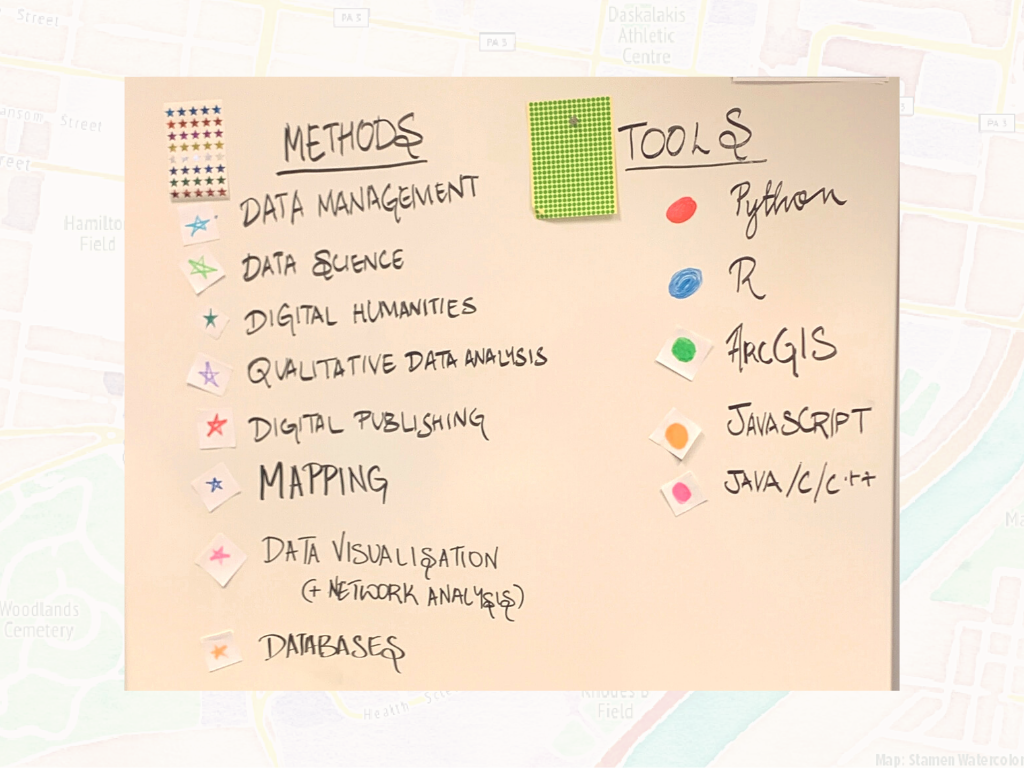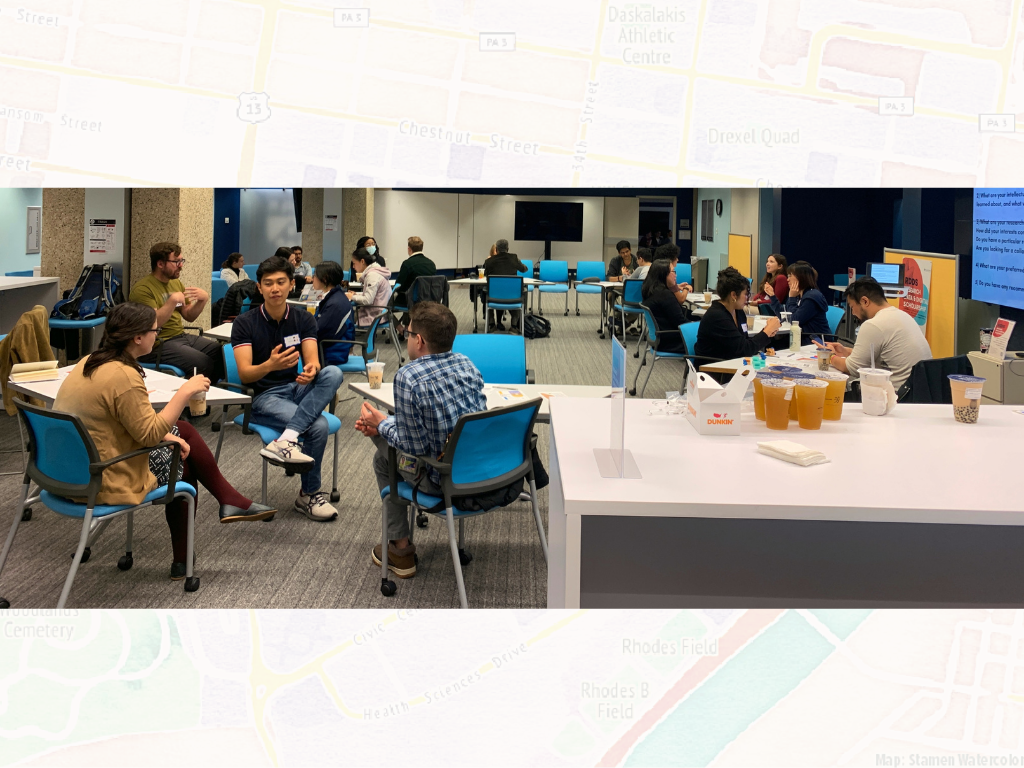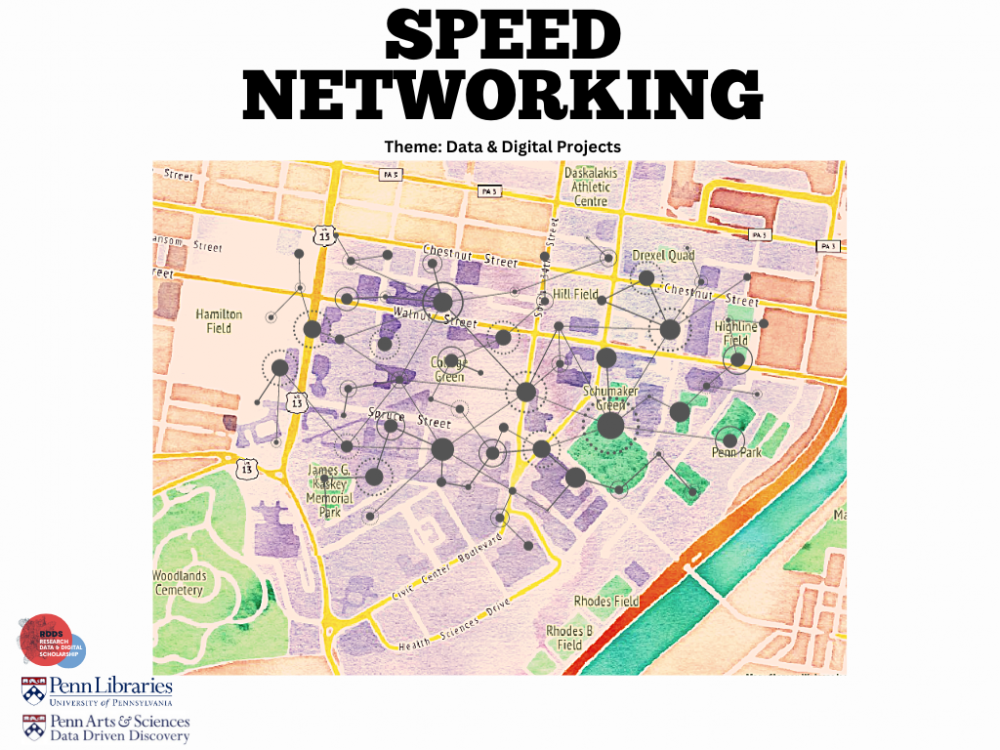Why Speed Network?
During the New Student Orientation for Fall 2023, Research Data and Digital Scholarship hosted a Pop-up event to introduce the University community to the new Research Data and Digital Scholarship Exchange space, also known as RDDSX. RDDSX is designed to foster computational community building, where we host our workshops, speaker series, user groups, interest groups, events, etc.
In the Pop-up event, students asked us questions about connecting with fellow researchers, professors, and peers who share similar interests. While the RDDS team already provides a wide range of services, hosts user groups, workshops, and serves as a hub for all things related to data and digital scholarship, my role also includes computational community building. As a department neutral space, RDDS can help students break free from the silos that academic rigor might constrain them with. This led to the development of the Speed Networking event with the overarching theme of Research Data and Digital Projects.
The Data Driven Discovery Initiative, with whom we have collaborated on Carpentries workshops and Data Science Hangouts sessions over the summer, co-hosted the event and sponsored much cherished Boba alongside the Library’s donut offerings. These proved to be great mood and energy boosters on a dreary, rainy Tuesday.
As an extension of the Data Wall experiment in Data Physicalization from the Pop-up, I created a legend using stickers to be added to name tags. This legend represented various methods and tools, allowing people to engage in conversations about their research interests and expertise. While this attempt proved slightly confusing at first glance, I plan to refine the interactive ice-breaker to make it more accessible. The prompts for the discussion itself were useful to have a free-flowing conversation although I imagine folks did go off-script based on what was more interesting to them. All these notes, to recreate a similar event are listed at the end of this blogpost.

In future iterations, we plan to organize similar sessions specifically for scholars facing precarious positions like post doctoral researchers, fellows, and contingent positions. We also aim to explore niche themes within our field, such as Public Digital Scholars, where researchers collaborate with communities for the public good. Another theme would be Maping, for those who work on different kinds of maps.
Furthermore, the students who attended brought with them a fascinating range of research interests and experiences. They found the event both useful and engaging. We hope that these events will lead to lasting collaborations, networks, and opportunities for connections at a university as vast and well-resourced as the University of Pennsylvania.

Notes for Future Event Management:
LibCal Blurb
Why should I go? This is a unique opportunity to build and expand your network for professional growth and development, learn about research projects that include data and/or digital elements from the source. This event is appropriate for all students who (want to) work on data or digital projects. Mingle with friends and meet new ones with coffee and donuts!
What kind of research projects will I talk / hear about? data ethics and data privacy, data management and data management plans, data visualization, digital exhibit and publication platforms, fundamentals of research computing (R, Python, etc.), mapping and GIS, natural language processing, machine learning, open science, FAIR principles, ORCiD IDs, qualitative data analysis (Atlas.ti; NVivo), research communication, research sharing, text mining and computational text analysis, web scraping, digital humanities, computational social sciences, etc.
This event is co-hosted by Data Driven Discovery Initiative.
Please register only if attendance is confirmed.
Prompts for Discussion
Please take five minutes to answer as many of these question as you like:
1) Preferred name and pronouns?
2) What are your intellectual and creative interests? What have you learned about, and what would you like to learn more about?
3) What are your research interests?
How did your interests come to you?
Do you have a particular research topic you are working on now?
Are you looking for a collaborator?
4) What are your preferred tools to use?
5) Do you have any recommended courses / resources on-campus?
6) Exchange Email / Contact details
Materials:
-
Refreshments
-
Name Cards / IDs
-
Tables and Chairs arranged for speed table exchange
-
Informational flyers
-
Plain Paper and Pen for Note-taking
-
Timer
-
Research Area, Methods, and Tools indicators (Stickers / Color markers)
